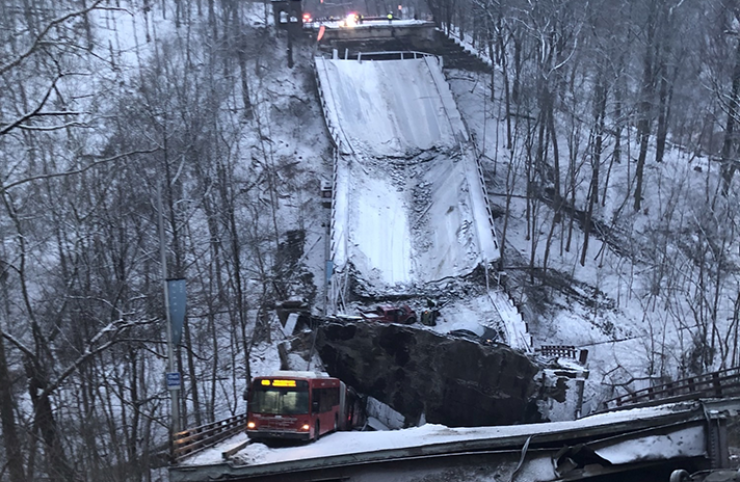Pennsylvania is calling for private firms to submit unsolicited proposals for transportation projects across the state as part of the commonwealth's public-private partnership program.
Interested companies have until April 30 to submit proposals that focus on “innovative ways to deliver transportation projects across a variety of modes including roads, bridges, rail, aviation and ports,” the Pennsylvania Department of Transportation said.
PennDOT's Public-Private Transportation Partnerships Office calls twice a year for unsolicited proposals, which must be for projects on PennDOT-owned projects, infrastructure, and services, according to PennDOT spokesperson Alexis Campbell.

The submissions are then reviewed by PennDOT's P3 Office and presented to a seven-member P3 board for consideration.
The request is part of a P3 program that the commonwealth describes as one of the most ambitious in the country.
PennDOT set up the program to ease budget pressure by drumming up alternative funding for highway and bridge needs. Currently, gas taxes generate 74% of the state’s highway and bridge funding.
Bridge repair and replacement have been a big focus of the program. In January, a major span
More than 15%, or 3,353, of Pennsylvania’s bridges are considered in poor condition, according to the American Society of Civil Engineers. That's second only to Iowa, with 19% of its bridges falling into that category.
The P3 Office runs four major P3 programs, including its
In March, PennDOT announced it had
Work on the first set of bridges, those that have completed the environmental process, will begin between the fall of 2023 and spring of 2024, the state said.
The Rapid Bridge Replacement Project, launched in 2015, was the state’s first public-private partnership and the first P3 in the U.S. to bundle multiple bridges into a single procurement. Under the program, which included the issuance of $800 million private activity bonds, the state replaced 558 bridges over three years.
Plenary Walsh Keystone Partners, a consortium of construction, engineering and financing companies, won the bid as the private team and holds the agreement to maintain the facilities until 2043.
On top of the four programs, the P3 office is currently considering four unsolicited proposals, including one that would rehab or replace 32 bridges that have no funding identified, and one that would allow trucks to bypass weigh stations.
The office has another three unsolicited proposals on hold and has rejected seven proposals, including a design-build-finance project to replace or repair 30 county-owned bridges in Mercer County using accelerated bridge construction techniques and one to install self-service vehicle registration renewal kiosks.





